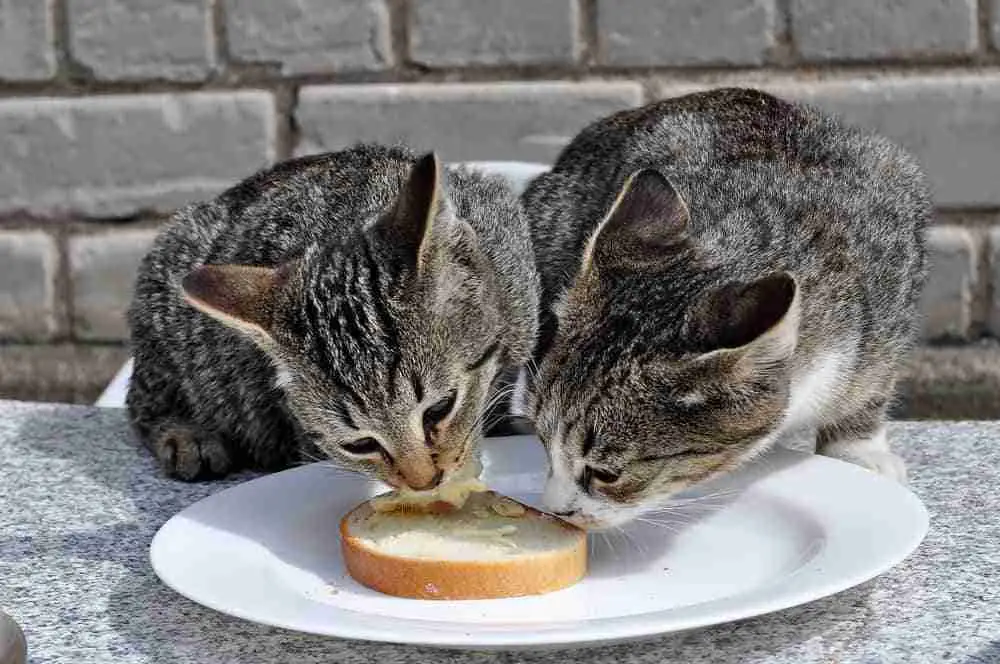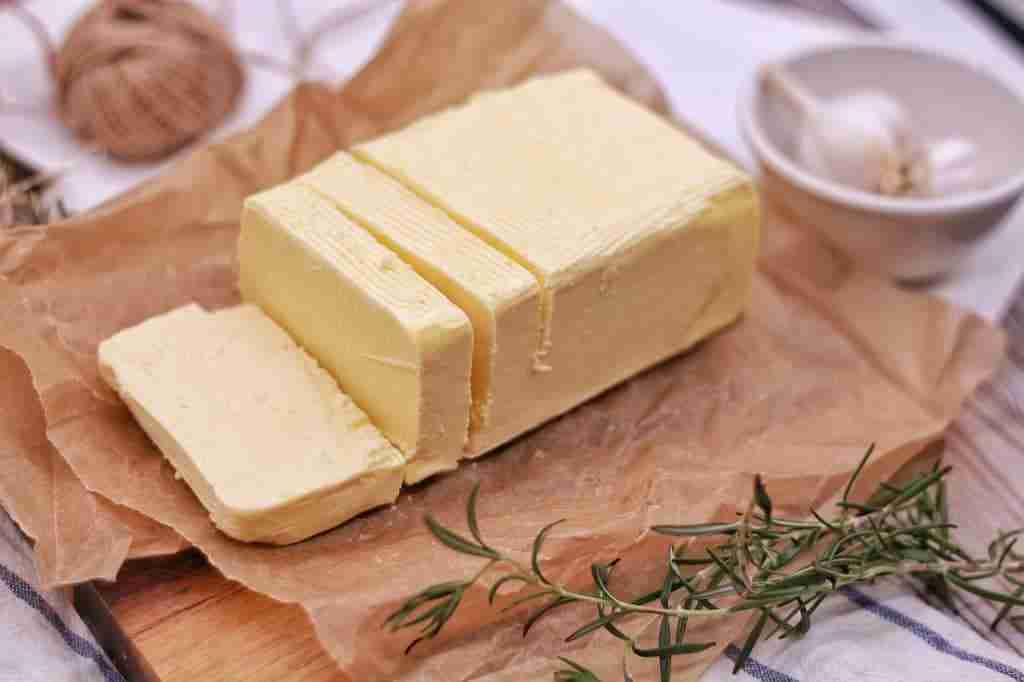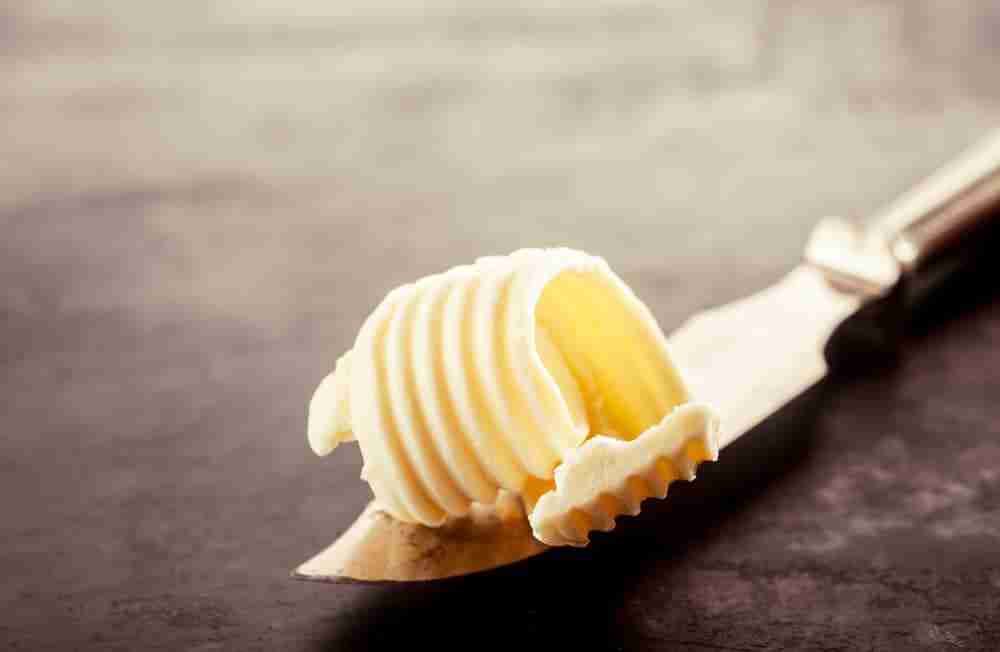Thanks to the internet, we know that cats can Haz Cheezburger.
But can cats have butter? Well, the short answer is that cats can have butter. It can be useful if you want your cat to put weight on quickly or treat your cat for hairballs.
The combination of human food types and cats leads us to some of the most common questions that cat owners will have. The one above is typed into search engines a couple hundred times per minute, and it’s one of the very first Google Autocomplete comes up with.
Butter is found in most households. The majority of cat owners will have butter or some kind of butter substitute in their fridge. Even if they don’t, a lot of snacks contain butter as one of the first ingredients.
The majority of cat owners will also report that their cats will appear to go berserk for butter (or anything that contains it).
Is butter toxic to cats, and what can happen to their health if they consume it? Is there a difference between margarine and butter to cats?
Here’s what you should know about cats, the ingredients and butter, and why the two shouldn’t mix often if you want your cat to be as healthy as possible.
Can Cats Eat Butter?

Butter is not considered to be toxic for cats.
Cats cannot die from consuming a little bit of butter on its own, or as an ingredient in something else.
If your cat has accidentally gotten hold of a buttery snack, there’s no need to rush to the vet or call poison control unless your cat shows an adverse reaction or symptoms like vomiting, nausea, or signs of pain. (And if they do, it is unlikely to be due to butter.)
This doesn’t mean butter is good for cats.
The real question is not whether cats can consume butter, but whether cats really should.
Butter is extremely rich due to the high levels of fat (60%). Some butter types or brands contain added colorants, flavorings, preservatives, and salt that is not good for your cat’s health – and no cat has ever been healthier after getting hold of a block of butter.
If your cat consumes too much butter (or gets hold of butter on a regular basis), adverse health effects are possible and likely.
Butter can trigger nausea, vomiting, and stomach upsets in cats when consumed regularly. Issues like weight gain and kidney problems can also be associated with the excess consumption of fats.
What’s the bottom line?
A cat’s diet should be as close to a natural cat diet as possible so your cat can be as healthy as it can be – cats don’t eat butter in the wild!
Why Do Cats Like Butter?
Butter is a pretty tasty ingredient for the majority of humans out there, and cats have the same reaction to it.
But why exactly do so many cats freak out when they see, smell, or taste butter?
The base ingredients of butter are naturally attractive to cats.
Basically, your cat is attracted to and loves creamy, fatty, and salty foods. Butter is like ice cream for cats! It is all their favorite things in one go.
In fact, there is an old wives tale that if you put butter on your cat’s paws they will never run off! They will be so enthralled with the flavor of the butter on their paws that they will lick it off and hang around looking for more!
However, just because cats think butter is a great idea, doesn’t mean owners should be giving them excessive amounts of dairy or fat.

Is Butter Bad For Cats?
Here’s a fact that the majority of cat owners might not know yet…
Cats are actually lactose intolerant. Even though cats don’t often show it to their owners, the addition of too much milk or dairy to a cat’s diet can cause issues like nausea, vomiting, or even regular stomach upsets.
Cats shouldn’t have milk or dairy products often. This includes milk, cream, whipped cream, ice cream, and definitely, butter.
However, compared to other dairy products, butter contains less lactose than a lot of dairy. This is because of the high-fat content in butter.
This means if your cat gets a little butter from time to time it is not likely to develop issues associated with lactose intolerance. But if you are giving your cat a knob of butter daily then look out – gas, diarrhea, and vomiting are sure to follow!
Are There Any Benefits To Giving My Cat Butter?
Apart from giving your cat a treat or bribing them to like you and stick around, owners often give cats butter for two reasons :
To help your cat put on weight fast – If your cat has been ill and is on the skinny side or seems to have little appetite and has lost weight as a result, giving your cat a regular side of butter can result in insidious weight gain – like if you ate ice cream every day!
The beauty of using butter is that your cat probably loves it and this makes it very easy to achieve your aims without necessarily force-feeding your cat.
To treat hairballs – oils and fats are sometimes added to cats’ diets to help the transit of hairballs by literally lubricating the hairballs that are forming in their stomach and lubricating your cat’s guts. Sounds weird but it actually works!
Coconut oil is often used for this purpose but some owners also go for butter or vegetable oils as they are high in fat content making it slippery and your cat won’t complain when you try to administer the treatment!
Butter Isn’t Toxic, But…
There’s a difference between toxic ingredients and things that are just not good for your cat’s health.
Butter isn’t toxic, unless there’s something very wrong with it. Rancid or expired butter can pose more of a risk than regular butter and might be severely dangerous to both humans and cats.
But just because butter is not toxic to your cat too much can still be harmful.
The high-fat content of butter means that too much of a good thing can be bad for your cat over the longer term.
If you give your cat too much butter on a regular basis they may become obese and suffer health problems associated with obesity.
Likewise, many cats develop pancreatic issues as they age and high-fat diets can be real bad for cats with a bad pancreas! If your cat is being treated for pancreatitis your vet will have warned you not to let them eat too much fat – this means no oils, butter, or other high-fat food
So can cats eat butter – a little butter is fine for your cat from time to time but don’t get into the habit of giving it to your cat on a daily basis – you may end up with a messy litter box or an obese cat with health problems!
